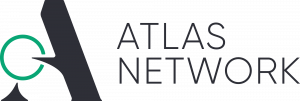Stamping out Statements of Acceptance in Ukraine for reducing red-tape and business costs in Ukraine and eliminate mandatory statements for Ukrainian businesses
An important milestone is the passage of the legislation in the parliament. However, reaching an agreement with the key stakeholders will be an important step forward as well.
Ukraine is the poorest economy in Europe and has to use every opportunity to increase its GDP growth rate to catch up with the rest of Europe in terms of economic development and citizens’ well-being.
According to the Doing Business 2020 index, a mid-size company in Ukraine spends 328 hours a year to comply with tax procedures, which ranks Ukraine 169th globally.
One such obstacle is a requirement to parties of a service contract to sign, exchange and keep copies of a statement of acceptance. According to the Ukrainian tax legislation, this document is material proof that the sides to the contract are satisfied with how their initial agreement was implemented, and the consumer may now pay the supplier.
Usually, a transaction in Ukraine goes as follows:
- Both parties sign a contract.
- The supplier provides a service.
- The supplier prints out two copies of a statement of acceptance signs both, and mails to the consumer.
- If the consumer is satisfied with the service, he signs both copies, sends one copy back to the supplier.
- If the consumer is not satisfied, he may not pay until the service is provided in full, or the parties may agree to a smaller payment, which is reflected in the statement of acceptance they finally sign and exchange.
- The consumer pays to the supplier.
In most cases, steps 3 to 5 are unnecessary and complicate the exchange between the parties. Unfortunately, they are mandatory and cannot be avoided.
We target to eliminate the mandatory Statements of Acceptance from the Ukrainian business legislation and in this way significantly improve the business environment and reduce the costs of doing business in Ukraine.
Our project aims at presenting calculations and arguments for eliminating this practice (or making it voluntary) to reduce costs and waste on a national scale.
Project is is funded by the Atlas Network.
